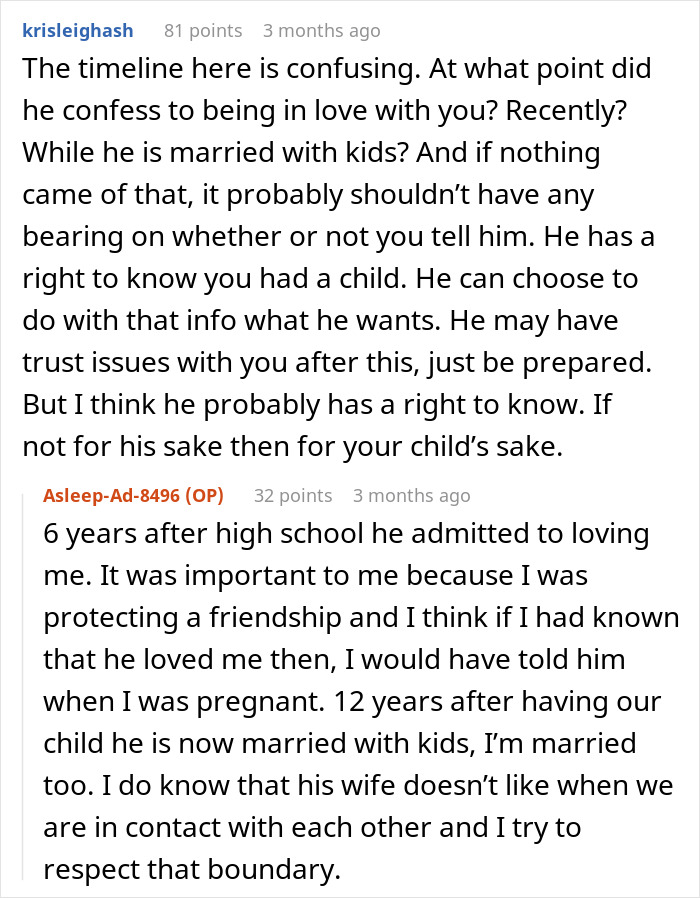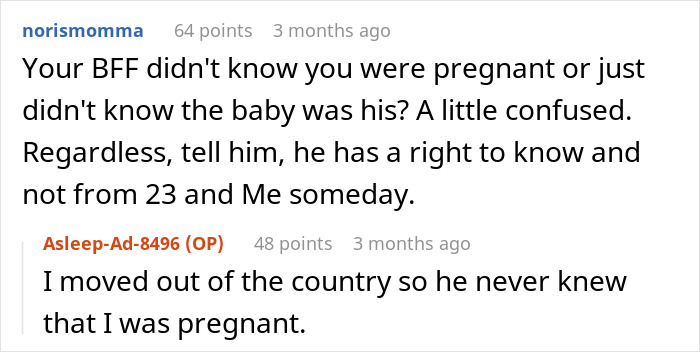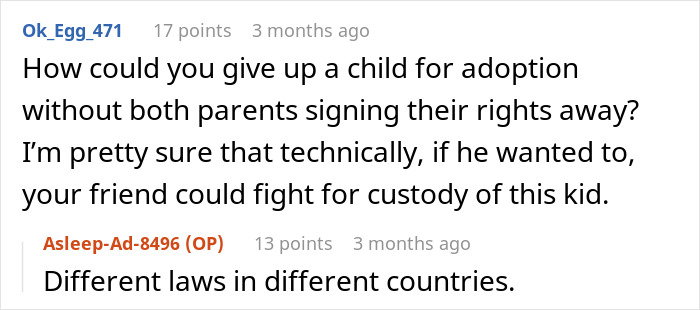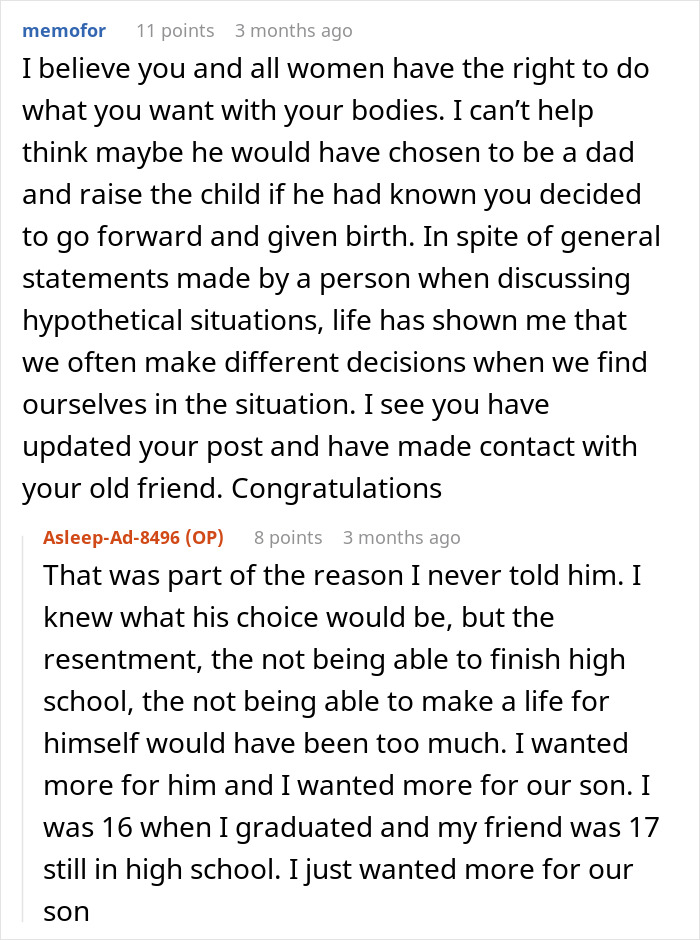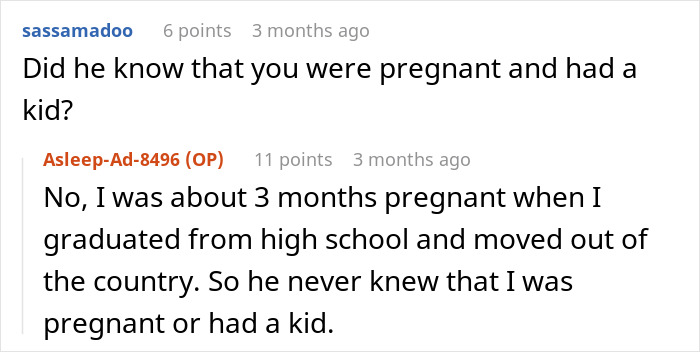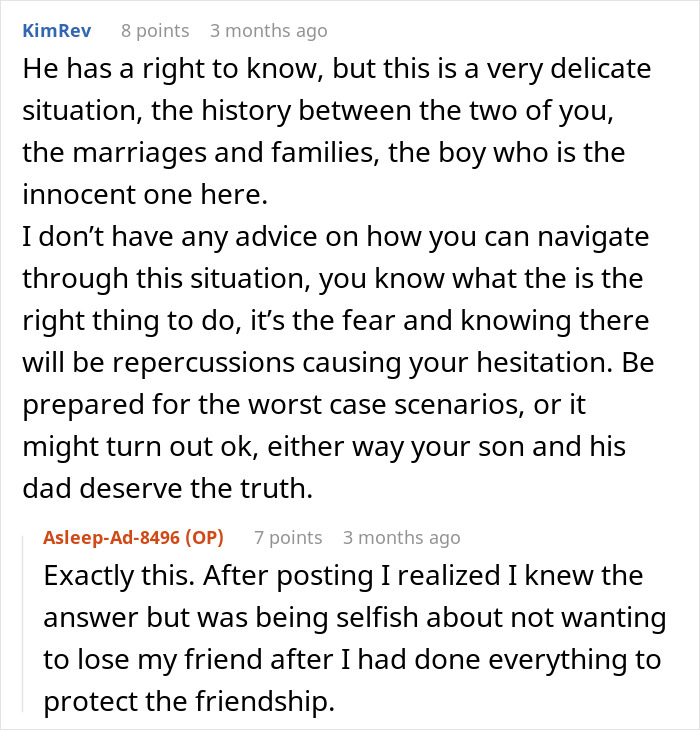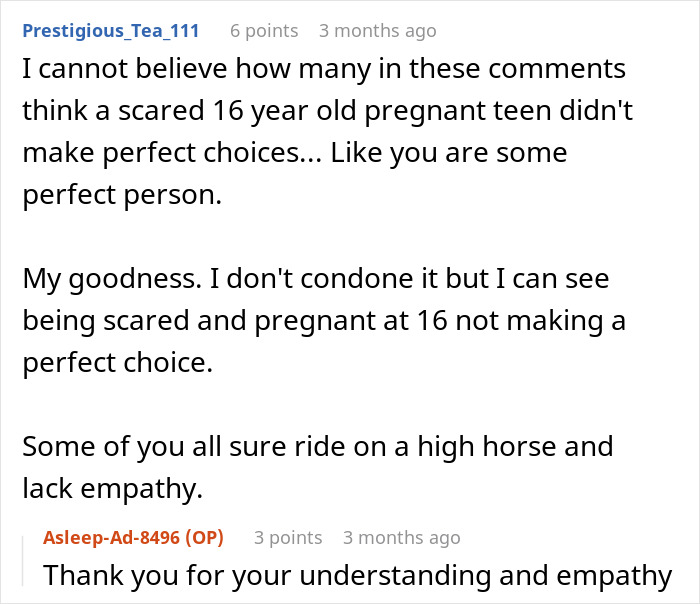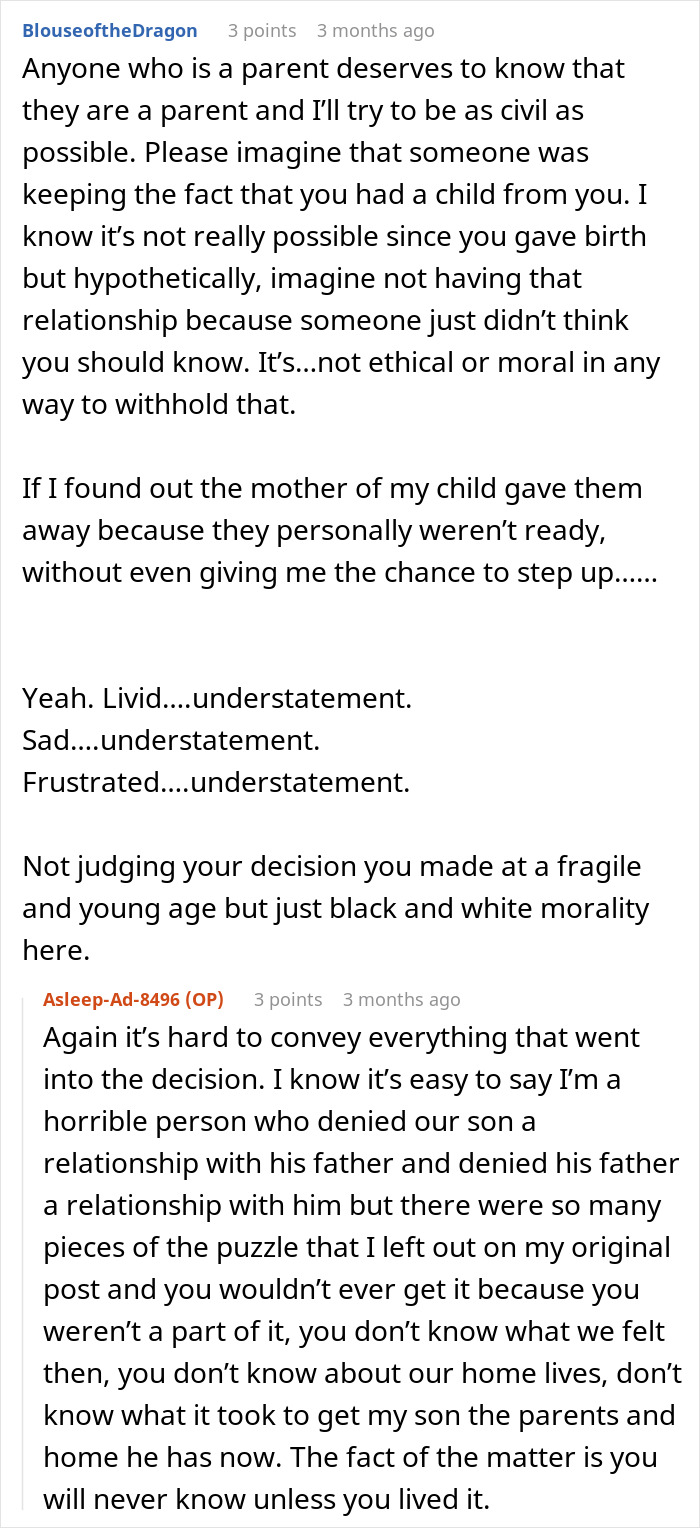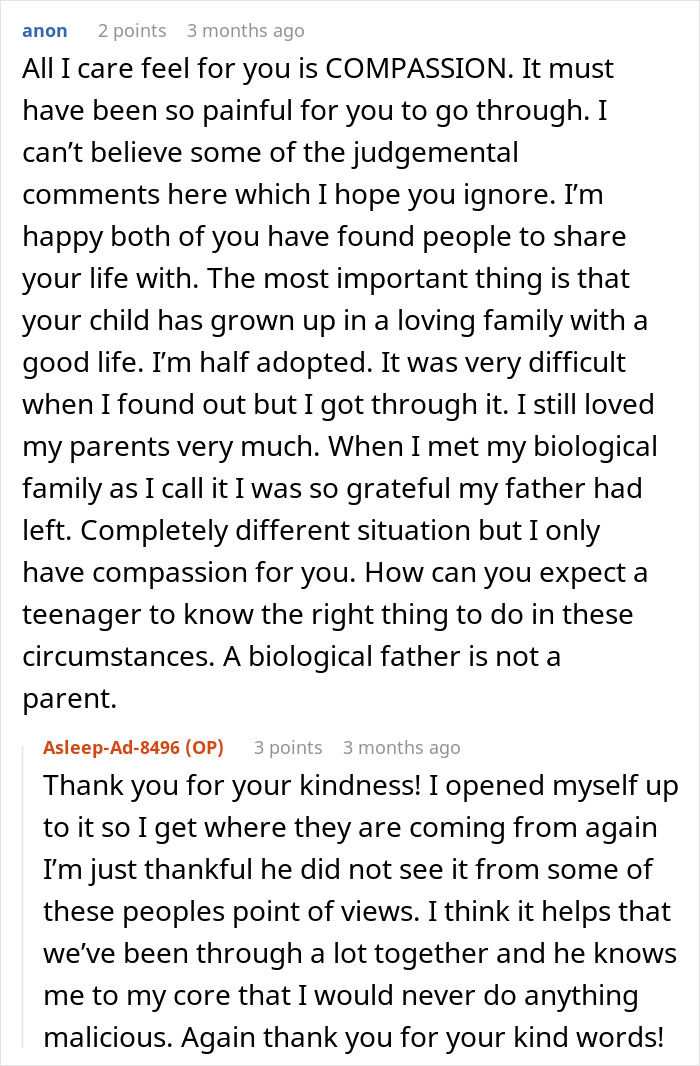Ideally, people have kids once they’re emotionally and financially ready. However, the reality is often very different, as many unprepared teens have to deal with pregnancy. In fact, in 2020, females aged 15-19 gave birth to 158,000 babies in the U.S.
As a teen’s brain is not yet fully developed, they can make pretty bad decisions. This teenager didn’t tell the father of her child she was having a baby. Yet she decided to drop the bomb on him 12 years later, encouraged by many people online telling her that he had a right to know.
A woman had her best friend’s baby in high school but didn’t tell him

Image credits: RDNE Stock project / Pexels (not the actual photo)
12 years later, she started wondering whether he should know he had a son
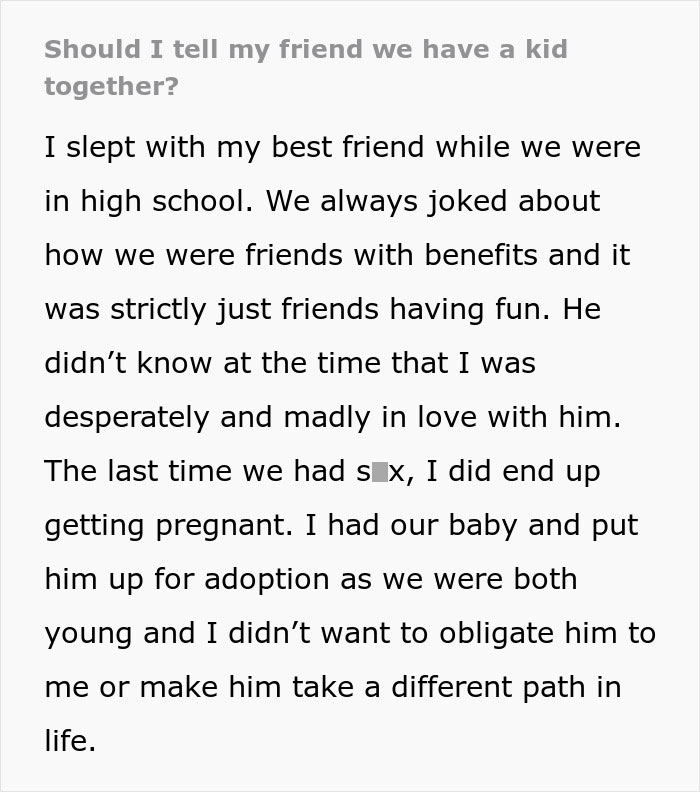

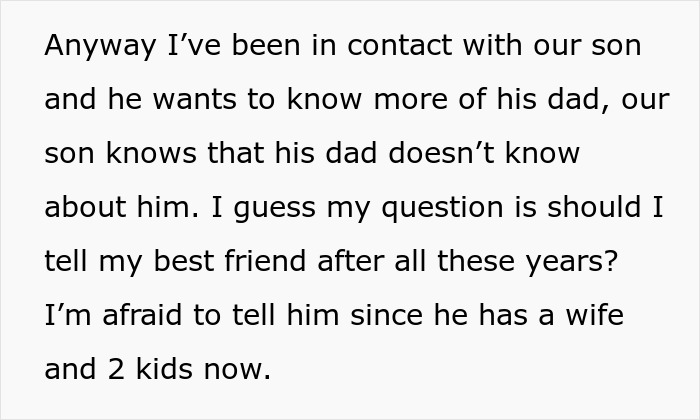

Image credits: SHVETS production / Pexels (not the actual photo)

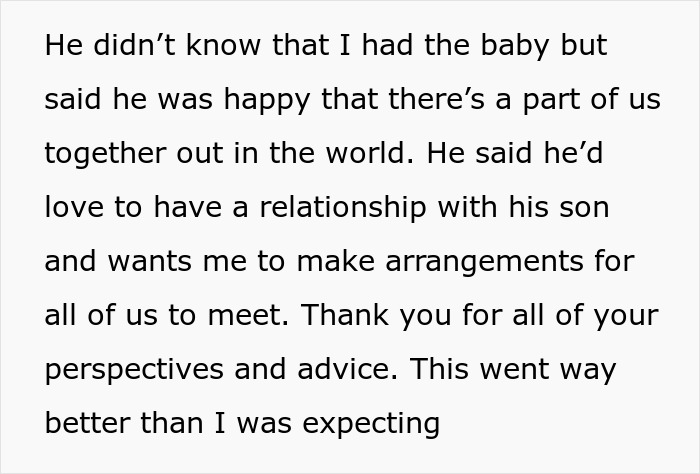

Image credits: Asleep-Ad-8496

Image credits: Anastasiya Gepp / Pexels (not the actual photo)
She did tell him, and she gave more details about her conversation with the father’s current wife





Image credits: Asleep-Ad-8496

Image credits: Helena Lopes / Pexels (not the actual photo)
Keeping a child a secret from the biological father is not illegal, but it’s still morally ambiguous
The user u/Asleep-Ad-8496 detailed a very personal but ultimately wholesome story. We don’t often see stories of teen pregnancy and adoption where there’s very little drama and all the characters get along in the end. But that’s what happened in this case.
The story began with the woman asking for advice: whether or not she should tell her childhood friend about a child he knew nothing about. In a later update and comments under both posts, u/Asleep-Ad-8496 explained that she decided to keep their son a secret for the child’s and the father’s futures.
“He would have dropped out of high school to have this baby with me,” the Redditor wrote. “But that’s not the life I wanted for him and it’s not the life I wanted for our son.” In other comments, she added: “The resentment, the not being able to finish high school, the not being able to make a life for himself would have been too much.”
Still, many people pointed out that it was his choice to make, not hers. Legally, it’s not a crime not to tell a man about his biological child. Sometimes, women do so out of fear for her or the child’s safety. Other times, they assume the father might not want anything to do with the child.
Such a decision can backfire easily. Primarily, the child loses out on having a relationship with their father and an important parent figure. On a more material front, they don’t get the father’s financial support throughout their life and miss out on inheritance rights.
However, that doesn’t really apply to this story, as u/Asleep-Ad-8496 chose adoption. Her son grew up with friends of her parents as his mom and dad, a couple who, at the time of his birth, couldn’t conceive themselves.

Image credits: Pixabay / Pexels (not the actual photo)
A new surprise sibling can cause a strain between a father and his other children
There is one other important element in this story: the biological father’s other children. The eldest, it turns out, is the godson of the OP and her husband. “He lived with us for about a year when he was 2,” the woman wrote in a comment.
The son’s biological mother is out of the picture. “She cheated then left everything behind including their son. When B went back into rehab my husband and I took care of their son,” u/Asleep-Ad-8496 detailed in another comment.
And as the author herself pointed out, this entire situation might be the hardest on her godson. Blending a family when a child is not a baby anymore might be difficult. Sometimes, children start competing for attention and dominance with their new siblings.
Experts say that it’s important that the child doesn’t feel neglected once a new sibling enters the picture. The dad will be building a relationship with the child he knows nothing about. But to preserve a good relationship with his middle child, he must spend quality one-on-one time with him.
Knowing that your parent still loves you “allows kids to relax a little bit, and they’re maybe less in a competitive mode with their stepsiblings and more open to bonding,” Larry Ganong, an emeritus professor of Human Development and Family Science at the University of Missouri, told NPR.
People had mixed reactions: some bashed her for the “selfish” decision, while others empathized that such a situation is hard on a teenager

